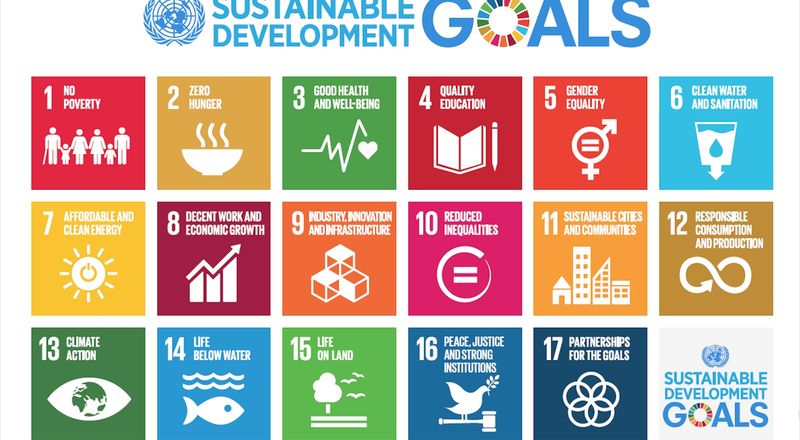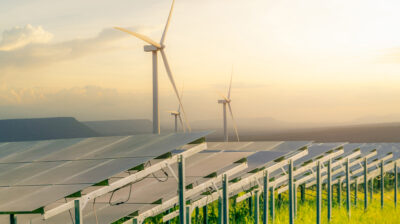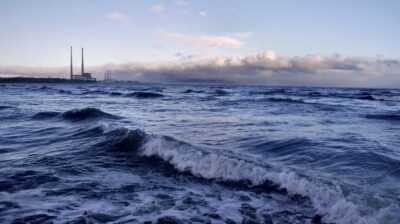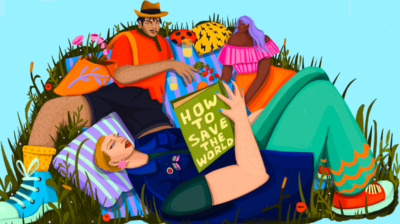What are the Sustainable Development Goals?
The Sustainable Development Goals are a set of goals created by the United Nations. Learn more about what you can do to achieve them.

The Sustainable Development Goals (SDGs), also known as Global Goals, are a set of goals which have been created by the United Nations (UN). These goals are the UN’s effort to end poverty, while protecting the planet and allowing people to experience peace and well-being. The UN is a government organisation whose job is to keep international peace and security, develop friendships among nations and be a centre for uniting the actions of nations.
What are the Sustainable Development Goals?
The SDGs are built on the Millennium Development Goals (MDGs), which came into effect in 2000 and primarily focused on ending poverty. The UN claim that the MDGs caused a drop in child mortality and school dropout rates, as well as lifted 1 billion people out of extreme poverty since 1990. They also saw a 40% decrease in AIDS/HIV infections.
The SDGs aim to focus on 17 new goals to continue what the MDGs started. The success of these 17 goals affect the success of the others. These goals are now thought to be the best chance for life improvement for coming generations.
The 17 SDGs are:
- No poverty: To end poverty in all its forms
- Zero hunger: Not only end hunger, but improve nutrition and have sustainable agriculture
- Good health and well-being: Ensure health and well-being in all ages
- Quality education: Promote inclusive and equal opportunities for lifelong learning
- Gender equality: Promote gender equality and empower all women and young girls
- Clean water and sanitation: Ensure clean water and proper maintained sanitation for everyone
- Affordable and clean energy: Ensure access to sustainable, affordable and reliable energy sources
- Decent work and economic growth: Promote sustained and inclusive economic growth and employment for all
- Industry, innovation and infrastructure: Build strong infrastructure and sustained industrialisation
- Reduced inequalities: Reduced inequality in all countries
- Sustainable cities and communities: Make all settlements inclusive and safe
- Responsible consumption and production: Ensure suitable consumption and production patterns
- Climate action: Take urgent action to combat climate change and its negative impacts
- Life below water: Conserve and sustainably use oceans and marine life
- Life on land: Protect, restore and ensure the safety and security of ecosystems
- Peace, justice and strong institutions: Promote inclusive societies for continual development
- Partnerships for the goals: Strengthen the means of implementation and revitalise global partnership
How are the SDGs Measured?
SDGs are measured by the SDG tracker, which presents data across all available indicators from the
Our World in Data database. This uses official statistics from the UN and other international organisations.
In the eyes of its authors it provides a way to track the progress of the SDGs. Robust measurement of achievements towards the SDGs allows people around the world to hold their governments responsible for their attempts at achieving these goals. No formal platform exists for people to hold their governments responsible for this.
The 17 SDGs are defined in a list of 169 SDG Targets. Progress towards these targets is tracked by close to 230 unique UN indicators.
What is being done to achieve the SDGs?
The United Nations Development Programme (UNDP) works to achieve all 17 goals by 2030. This means that everyone needs to get involved and do their part to help.
Here are the four strategies which will be used by the government to support SDG achievement:
- Raising awareness of the SDGs
- Providing chances for stakeholders (people with a particular interest in the specific topic) to participate in the follow up processes of these goals
- Encouraging and supporting efforts by communities to meet these SDGs
- Developing opportunities within government policies to achieve these goals
What can we do to achieve the SDGs?
Here are 5 basic ways you can make a difference everyday:
- For good health and well-being: Do not drink and drive, or use your phone behind the steering wheel of a car
- For responsible consumption: Avoid overbuying and plan out meals in advance. Excess fresh food can be frozen and food should be bought from local suppliers where possible. Eat less meat and fish when possible, as they take more resources to produce
- To assure equality: Try and be more open-minded and less discriminatory, as well as actively listen to different thoughts and opinions
- To reduce waste and increase production: Donate to charities and shop second-hand. Use refillable water bottles and reusable cloth bags instead of plastic
- To increase education and reduce unemployment: Finish school and work, and seek internships and traineeships.
These small changes in our lifestyle allow us reach for the SDGs and start to put them into action and improve society.
spunout and the SDGs
We support Spark Change to help implement the SDGs in Ireland.
Spark Change is a collaborative project of The Wheel and Trinity College Dublin. The project is funded by the Environmental Protection Agency (EPA).
The goal of Spark Change is to improve the economic, social and environmental sustainability of communities across Ireland, and to gather information on how community and voluntary activity is contributing to Ireland’s commitments to achieve the UN’s Sustainable Development Goals by 2030.
If you would like to help implement the SDGs in Ireland sign up to the Spark Change Challenge and help create positive change in your community.
Need more information, advice or guidance?
We offer information, advice and guidance about the issues that matter to you. Our online Youth Information Chat service is for 16 to 25 year olds and is available Monday to Friday, 4pm to 8pm (excluding Bank Holidays).






